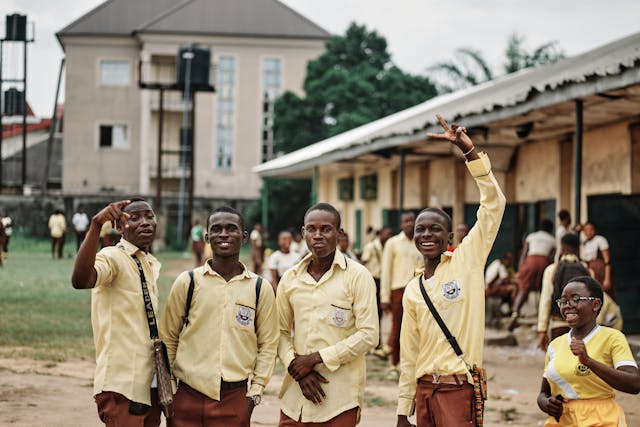The Youth of North Africa: A Generation on the Move
North Africa’s young people have always been a force for change. From the ancient civilizations that shaped the region to the more recent Arab Spring uprisings, their energy and aspirations have echoed through history. Today, this generation faces a unique set of challenges and opportunities, from high unemployment to the growing threat of climate change.
Foreign Aid and Local Action: A Helping Hand
Organizations like UNICEF and the UNDP are working hard to improve the lives of young people in North Africa. They’re focusing on essential things like education, healthcare, and job opportunities. It’s not just about throwing money at the problem; it’s about working with local communities to create lasting change.
Governments are also stepping up, recognizing that investing in young people is key to the future of their countries. Tunisia, for instance, is reforming its education system to give young people the skills they need to succeed in the modern economy.
Obstacles and Opportunities: A Complex Landscape
Of course, there are roadblocks. Unemployment remains stubbornly high, and the disconnect between education and the job market is a major issue. In some countries, political instability and conflict have disrupted education and made it difficult for young people to find meaningful work.
Climate change is another growing threat. Droughts and extreme weather are becoming more common, putting pressure on resources and livelihoods. This is especially tough on young people, who are often the most vulnerable to economic shocks.
And let’s not forget the pull of extremist ideologies. When young people feel marginalized and without hope, they can be more easily lured down a dangerous path. It’s crucial to offer them alternative paths, ones that lead to education, employment, and a brighter future.
Looking Ahead: A Generation’s Potential
Despite the challenges, there’s a real sense of hope and determination among the young people of North Africa. They’re resourceful, creative, and eager to make a difference.
Investing in quality education is essential. We need to equip young people with the skills they need for the jobs of tomorrow. We need to create more economic opportunities, especially in rural areas, and foster a spirit of entrepreneurship.
We also need to listen to young people, involve them in decision-making, and empower them to shape their own future. After all, they are the future of North Africa. Their dreams and aspirations will shape the region for generations to come. It’s up to us to give them the support they need to thrive.
References
- “Assessing Turkey-Africa Engagements,” AfriPoli. https://afripoli.org/assessing-turkey-africa-engagements.
- “Climate Change and Vulnerability in the Middle East,” Carnegie Endowment for International Peace, July 2023. https://carnegieendowment.org/posts/2023/07/climate-change-and-vulnerability-in-the-middle-east?lang=en¢er=global.
- “Investing in Quality Education for Economic Development, Peace, and Stability,” Center for Strategic and International Studies. https://www.csis.org/analysis/investing-quality-education-economic-development-peace-and-stability.
- “Innovative Financing for Gender-Inclusive Public Spaces,” Cities Alliance. https://www.citiesalliance.org/newsroom/news/results/innovative-financing-gender-inclusive-public-spaces.
- “Youth Unemployment in the Developing World is a Jobs Problem,” Stanford Social Innovation Review. https://ssir.org/articles/entry/youth_unemployment_in_the_developing_world_is_a_jobs_problem.
- “Young People’s Health and Well-being in MENA,” UNICEF. https://www.unicef.org/mena/reports/young-peoples-health-and-well-being-in-mena.
- “The Overlooked and Underrated Role of Youth and Women in Preventing Violent Extremism,” CIDOB. https://www.cidob.org/publicaciones/overlooked-and-underrated-role-youth-and-women-preventing-violent-extremism.






